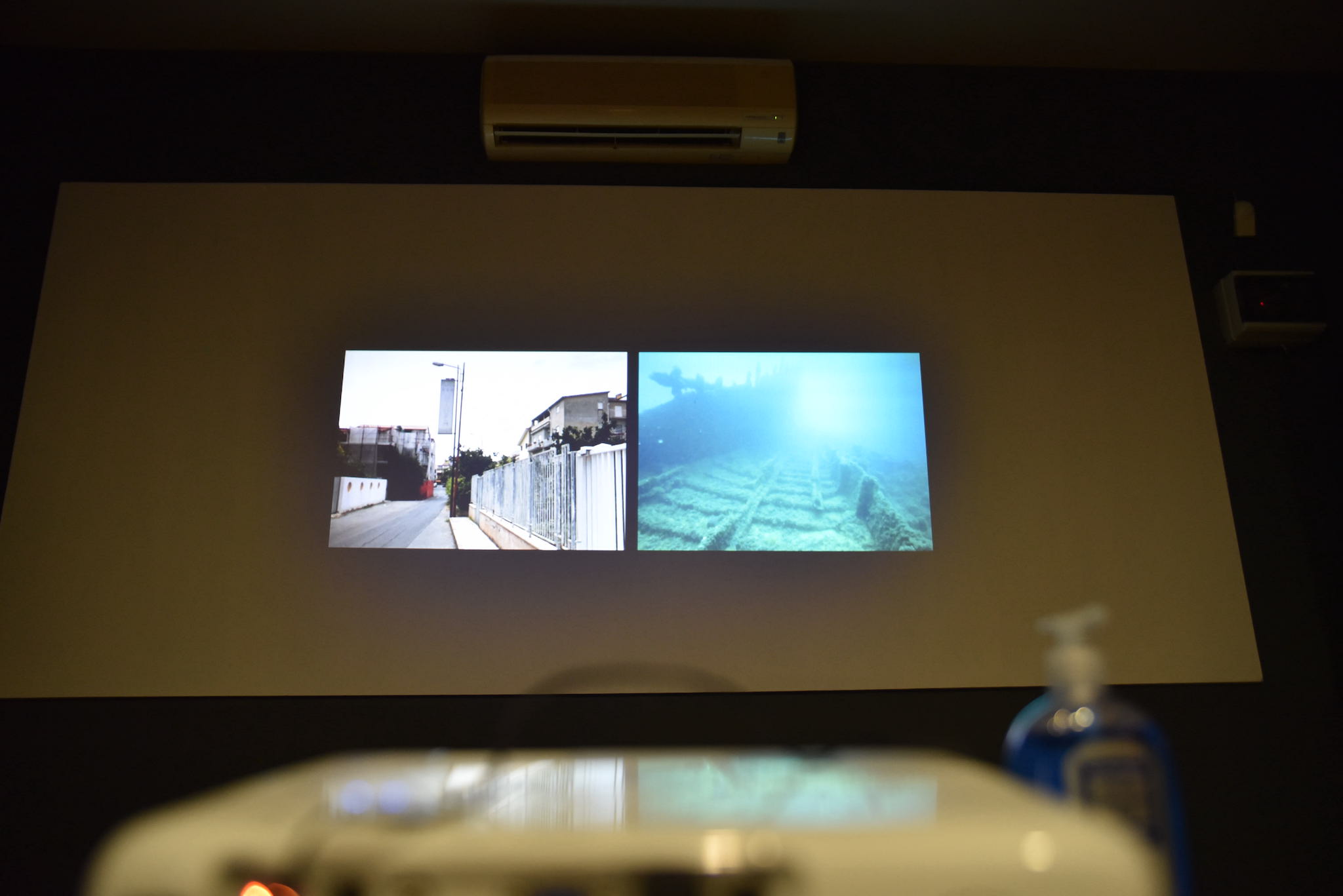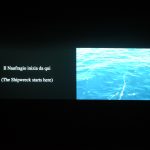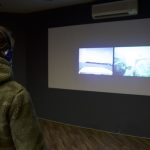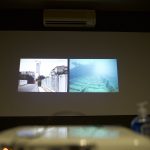Through underwater footage, hydrophone and field recordings Il naufragio inizia da qui enters Italy’s system of reception for asylum seekers during the COVID pandemic and the controversial embarkation of people onto quarantine boats.
Through the conceptual lens of a shipwreck society
the film starts from protests in the seaside town of Amantea, Calabria, when a group of people locked down in a “reception centre” contracted covid. The protest took place with the intention of interning the group onto quarantine vessels – repurposed cruise ships. During a period in which solidarity at sea and on land is under assault, the film explores how a nationalist imaginary of detention aspires to return those who arrive to seek refuge by boat, under precarious conditions, back to the sea and to the risk of shipwreck once more. Under the auspices of a system of “accoglienza” – a word that translates to both reception and hospitality
– the sea becomes a space of floating detention and incarceration. The film reflects on how people perceive their relationship to the sea in this context.
Adapting the phrase “Il mare inizia da qui” (the sea starts here), often used as an educational device to raise environmental consciousness, the two-channel film uses disjunctures of sound and image to produce an immersion in the sea whilst on land and on the land from the position of the sea. It asks whether it is also possible to say that from the land “il mare inizia da qui?” or does the shipwreck start here?
The film is part of Ifor’s broader research project entitled Necro-Hydrology which begins with the acknowledgement that for many water is a source of terror. After Achille Mbembe’s concept of Necropolitics (2019), necro-hydrology exists where the knowledge and corresponding management of water in all its forms emerges as adversarial to life and positions human and environmental justice as always intrinsically connected. The conceptual core of this project understands that the ways in which water is known and managed has a direct relationship with how people are treated and how populations are governed.




